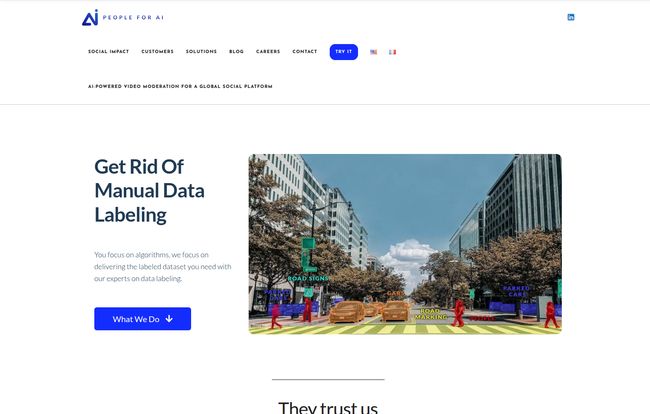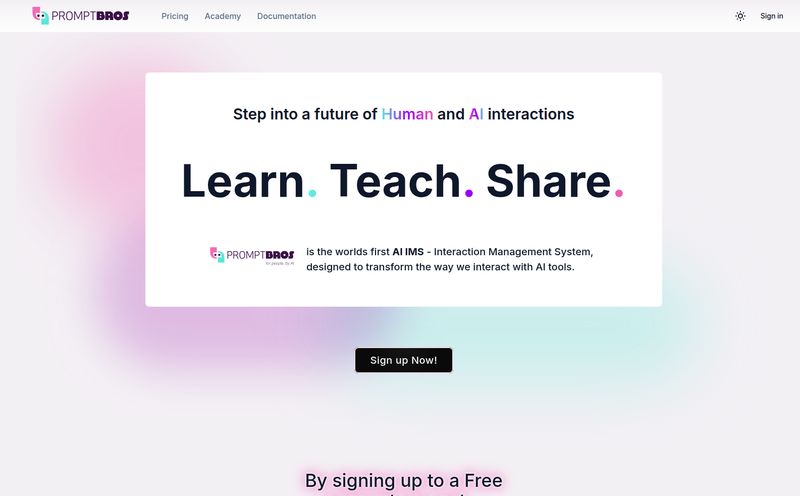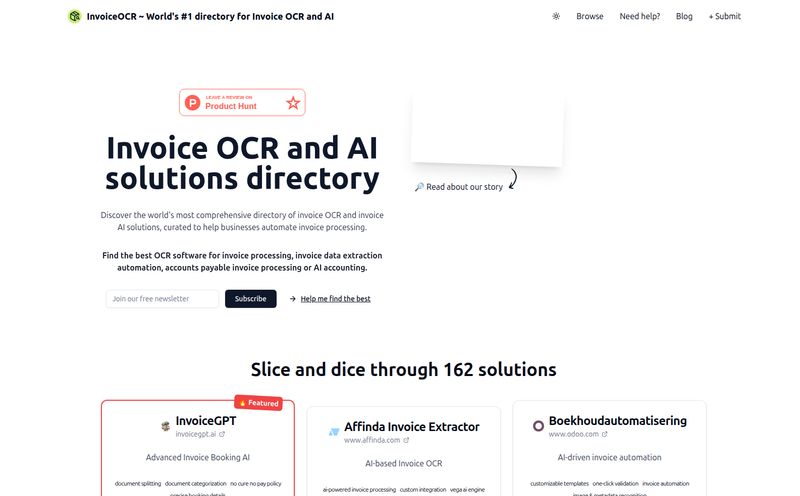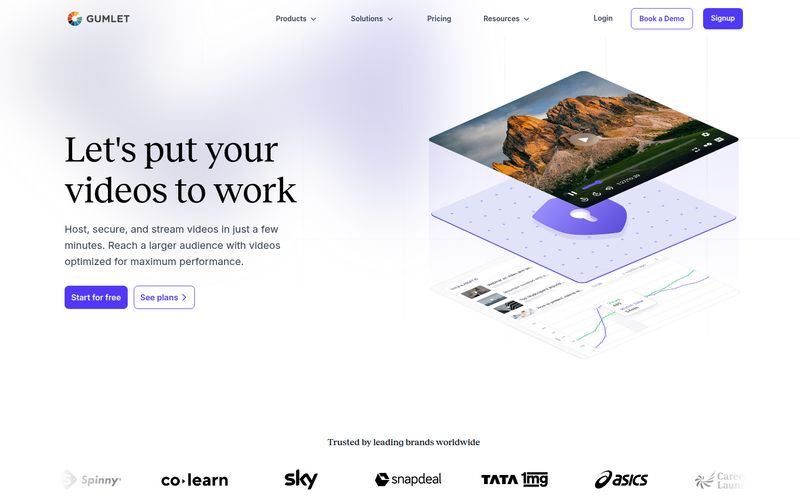We all love talking about fancy new model architectures and mind-bending algorithms. It's the sexy part of AI. But every single one of us in the machine learning trenches knows the real, unglamorous truth: your model is only as good as your data. It’s the classic “garbage in, garbage out” problem, and it’s a monster that has sunk more promising AI projects than I can count.
For years, the go-to solution for getting huge datasets labeled has been crowdsourcing. You throw a mountain of images or text at a massive, anonymous workforce and hope for the best. And sometimes? It works. For simple tasks, it can be fast and cheap. But for anything requiring nuance, consistency, or a high degree of accuracy… well, it can feel like you're trying to build a Swiss watch with a sledgehammer.
I stumbled upon a French company, People For AI, that’s taking a pretty different path. Their entire model is built on a bold premise: no crowdsourcing. Ever. And that, my friends, got my attention.
So, What’s the Big Deal About “No Crowdsourcing”?
At first glance, rejecting the most scalable model for data annotation seems counterintuitive. But when you think about it, it makes a ton of sense. Imagine you're training a complex computer vision model to detect subtle defects in manufacturing, or a nuanced NLP model to understand sarcasm in customer reviews. You don’t want a thousand different people spending five minutes each on your data. You want a small, dedicated team that gets it. A team that learns the project's intricacies and gets better and more consistent over time.
People For AI uses in-house, dedicated labelers. These aren't random people on the internet; they are trained professionals who are managed and stick with projects long-term. This creates a feedback loop. The labelers build domain expertise, which leads to higher-quality annotations. Higher-quality annotations lead to better-performing models, which means less time and money spent on frustrating retraining cycles. It’s a simple idea but one that the industry has been slow to adopt because scale is often prioritized over quality.
This approach also tackles another huge concern: security. For anyone working with sensitive or proprietary data—think medical images or pre-launch product designs—tossing that data onto a public crowdsourcing platform is a non-starter. By keeping everything in-house with vetted, GDPR-compliant processes, they offer a level of security that you just can't get from the crowd. It’s a peace of mind that many CTOs would gladly pay a premium for.

Visit People For AI
A Look at Their Services and Expertise
People For AI isn't just a one-trick pony. They've structured their services across the major food groups of AI data:
- Computer Vision: We're talking bounding boxes, semantic segmentation, polygon annotation, the whole shebang. They've done work for autonomous cars, infrastructure inspection, and even food retail.
- NLP: From sentiment analysis to named entity recognition (NER), they handle the complexities of human language.
- Speech Recognition: They also do audio transcription and classification, a field where accuracy is notoriously difficult to achieve.
What I find particularly interesting is their emphasis on being a partner, not just a vendor. Their website talks about helping you define the right data annotation strategy from the get-go. This is huge. So many projects go off the rails because the initial labeling guidelines were ambiguous or poorly planned. Having an experienced team help you build that foundation can save you a world of pain down the line.
The Elephant in the Room: Let's Talk Pricing
Alright, let’s get to it. A dedicated, professional service like this isn’t going to be the cheapest option on the market. If you’re comparing their quotes to a platform like Mechanical Turk, you’re going to have some sticker shock. But that's comparing apples and oranges.
Based on their site, People For AI's pricing for larger projects (over 500 hours) sits in the €6 to €9 per annotation hour range. This rate covers the annotation itself, a review process (a crucial quality step!), and customer care. There's also a one-time setup fee of around €200-€300, which covers selecting and training the specific team for your project and getting the annotation tools configured. It seems fair, you're paying for a custom setup not an off-the-shelf solution.
Is it expensive? Compared to the bargain bin, yes. But here's my take: bad data is the most expensive thing in AI. The cost of a failed model, of going back to the drawing board after months of work, of a product that doesn't work in the real world... that cost is astronomical. In that context, paying a premium for clean, reliable, high-quality training data starts to look less like an expense and more like a very smart investment.
Is People For AI the Right Fit for You?
This service obviously isn’t for everyone. If you have a simple, massive task and a shoestring budget, crowdsourcing might still be your answer. But for a growing segment of the AI industry, the People For AI model is incredibly compelling.
Who I Think It's For
I see this being a perfect match for serious, well-funded startups and established companies whose AI application is mission-critical. If you're in the medical, automotive, or security space, the quality and security guarantees are probably non-negotiable. The Altelia quote on their page says it all: "I have a very positive experience with People for AI on several unsupervised video analysis projects. They helped me get started on the problem of creating annotated datasets." That's a strong endorsement for projects that are complex from the start.
Potential Downsides to Consider
Of course, no service is perfect. The most obvious hurdle is the cost. It’s a premium service with a premium price tag. The other thing is the minimum project size. While not explicitly stated for all projects, they mention a 50-100 hour minimum for Proof of Concepts (POCs), which implies they're not really set up for tiny, one-off jobs. This is a service for those who are committed to a project and ready to invest in a proper data pipeline.
My Final Take
I’ve been in the SEO and traffic game for years, and I’ve seen how trends come and go. But one thing that never changes is the need for a solid foundation. In my world, that’s good technical SEO. In the AI world, it's high-quality data. People For AI has placed a big, bold bet on that foundation.
They are betting that as the AI industry matures, more companies will graduate from the “fast and cheap” mindset to a “do it right the first time” philosophy. By ditching the unpredictable nature of crowdsourcing for a dedicated, expert-led approach, they’re offering a compelling solution for serious AI development. It’s not the cheapest path, but for a growing number of applications, it’s almost certainly the smartest.
Frequently Asked Questions
What exactly is People For AI?
People For AI is a French data labeling company that provides high-quality, human-annotated data for AI projects. They specialize in computer vision, NLP, and speech recognition, using an in-house team of professional labelers instead of crowdsourcing.
Why do they avoid using crowdsourcing?
They avoid crowdsourcing to ensure higher quality, consistency, and security. Using a dedicated, long-term team for each project allows labelers to develop expertise, which results in more accurate annotations, especially for complex tasks. It also provides a more secure environment for sensitive data.
How much does People For AI cost?
For production projects over 500 hours, the cost is typically between €6 and €9 per annotation hour. This includes annotation, review, and project management. There's also a one-time setup fee of €200-€300 for team training and tool configuration.
What kind of projects are they best for?
They are ideal for complex, high-stakes AI projects where data quality and security are paramount. This includes industries like medical imaging, autonomous vehicles, industrial inspection, and any application dealing with nuanced or sensitive data.
Is the service GDPR compliant?
Yes, their in-house model and processes are designed to be GDPR compliant, offering a high level of data privacy and security, which is a major advantage over many crowdsourcing platforms.
How do I get started with a project?
The first step is to get in touch with them through their website. The process usually begins with a discussion to understand your project and define a clear data annotation strategy before any labeling begins.
Reference and Sources
- People For AI Official Website
- People For AI Contact & Pricing Information
- A Recipe for Training Neural Networks - by Andrej Karpathy (A great read on the importance of getting intimate with your data)



